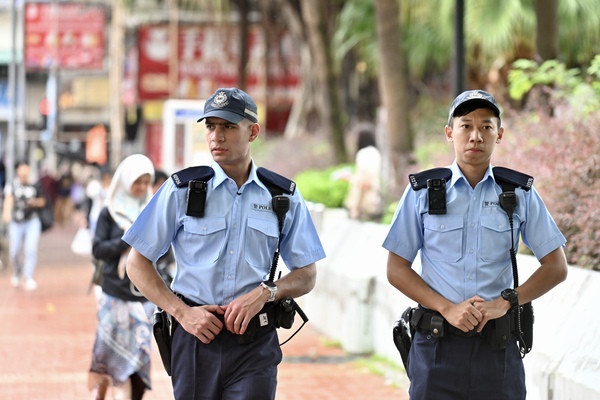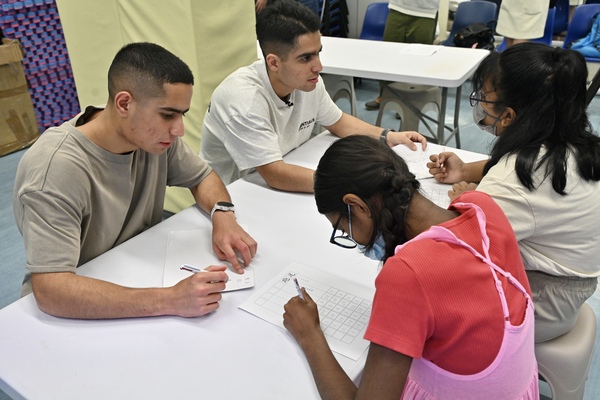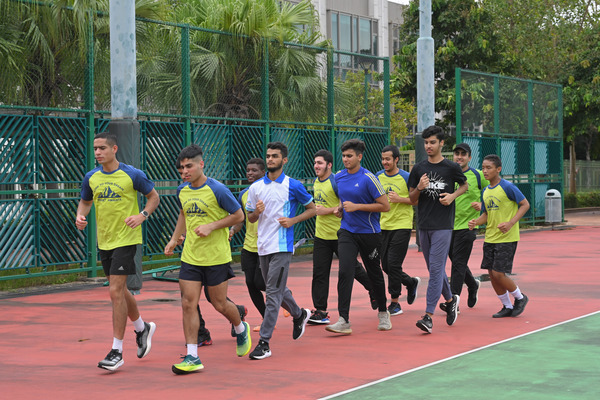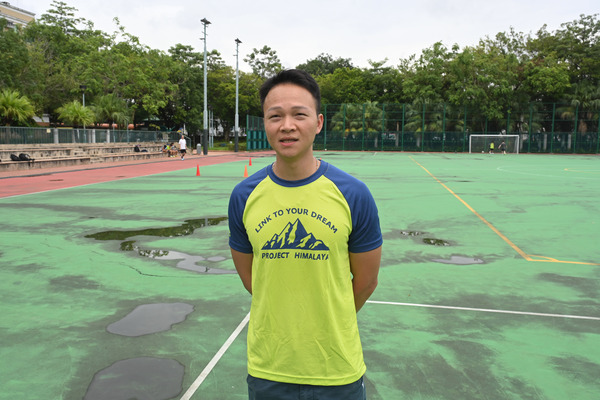Project helps realise policing dreams
Brothers Adnan and Reyhan Saeed are only in their 20s, but have already achieved their dream of becoming police officers, thanks to Yuen Long Police District’s Project Himalaya.
Of Pakistani descent, but born and bred in the city, the brothers have deep roots in Hong Kong through their grandfather and went to mainstream schools in Tin Shui Wai.
According to Reyhan, many young non-ethnic Chinese often feel uncertain about their future as they usually come from low income families.
“Locals mainly view non-ethnic Chinese as employed in manual labour such as construction or warehouse work. Many young non-ethnic Chinese lack confidence due to their skin colour and believe it is challenging to compete with local talent.”
Role models
When they were in secondary school, the brothers listened to a talk by Hong Kong's first non-ethnic Chinese police inspector Abdul Faisal which inspired them to join the force in the hopes of also becoming role models for the next generation.
“Mr Faisal told us that if we are willing to try, there are opportunities in Hong Kong,” Reyhan added.
In August last year, 22-year-old Adnan and 20-year-old Reyhan passed the interviews to be accepted to the Police College.
They excelled during training, with younger brother Reyhan even breaking the college's 28-year-old record by finishing the 2,400m run in just seven minutes and 14 seconds.
Competitive edge
In February, the brothers finally achieved their dream and officially became police constables.
Adnan was assigned to the Patrol Sub-unit of the Yuen Long Division, while Reyhan joined that of the Tuen Mun Division.
Yuen Long has a significant population of non-ethnic Chinese, and Muslims gather for prayers on Fridays at midday at two main mosques in the area, Adnan explained.
“My colleagues and I usually patrol during prayer times to find out about recent goings on and the needs of the ethnic minority communities, then report what we have learnt to our superiors.”
He added that the brothers’ ability to speak Cantonese, English, Putonghua, their native language of Urdu and even Indonesian, in addition to their knowledge of Islam, proves invaluable in their duties.
Adnan also noted that he is able to effectively carry out his duties by establishing an immediate trust with individuals involved in cases related to non-ethnic Chinese as he knows how to handle situations involving the more conservative ethnic minority females.
Diverse learning
Project Himalaya, a programme aimed at encouraging ethnic minority youngsters aged six to 25 to join the force, played a key role in helping the brothers achieve their policing dreams.
There are currently around 870 programme participants, primarily from Nepal, Pakistan and India. Some of them have only limited knowledge of Chinese.
They get the opportunity to improve their Chinese language skills and take music and sports classes.
They also prepare for the police selection process by practising for the physical fitness test and interview as well as visit various police units and cultural places, such as the Hong Kong Palace Museum.
Police noted that the participants showed significant progress after joining the project.
“They develop a stronger awareness of crime prevention, improve their Chinese language proficiency and get a deeper understanding of the local culture and the city's disciplinary forces. They also gain more confidence and improve their life planning skills,” Police Yuen Long District School Liaison Officer Wong Man-keung noted.
Since its inception in 2013, the programme has seen participants joining the Police Force, the Auxiliary Police Force and other disciplinary forces.
Mr Wong pointed out that the population of non-ethnic Chinese is growing continuously. He hopes more ethnic minorities will join the Police Force.
“They have a unique culture, language, lifestyle and education, and laws are different in their native countries. That is why we greatly need their participation to help us enforce the law.”






